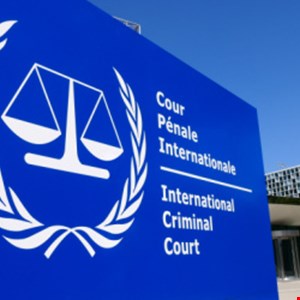- Kali Linux gets a UI refresh, new tools, and an updated car hacking toolset
- How the Sandwich Generation Can Fight Back Against Scams | McAfee Blog
- Buy a Samsung Galaxy Watch 7 on sale and get a free SmartTag2 Bluetooth tracker - here's how
- Cisco capitalizes on Isovalent buy, unveils new load balancer
- I upgraded to Android 16 - here's what I love and what's still missing
Ukraine: Russian Cyber-Attacks Should Be Considered War Crimes

The Ukrainian government believes Russian cyber-attacks on its country’s critical and civilian infrastructure are potential war crimes, a cybersecurity official has revealed.
In an interview with Politico, Victor Zhora, chief digital transformation officer at the State Service of Special Communication and Information Protection (SSSCIP) of Ukraine, said that government officials are gathering evidence of cyber-attacks conducted alongside kinetic strikes to support potential prosecutions at the International Criminal Court (ICC) in The Hague.
Russia has conducted numerous cyber-attacks on Ukrainian government and critical services since it began its invasion of the region on February 24, 2022. Common tactics have included DDoS attacks, disinformation campaigns and large-scale wiper attacks.
A number of attempts to take down critical infrastructure through cyber-attacks have been observed during the conflict, such as telecoms services and energy suppliers. Ukraine has been widely praised for its cyber-resilience in face of this onslaught.
Some Russian cyber-attacks on Ukraine have also spilled over into other regions, most notably the DDoS strike on communications company Viasat in February 2022.
In the interview with Politico, Zhora highlighted coordinated Russian cyber and kinetic attacks on critical infrastructure in the conflict, such as on Ukraine’s largest private energy investor DTEK in July 2022. “Their thermal power plant was shelled, and simultaneously, their corporate network was attacked. It’s directed and planned activity from Russians, which they did both in conventional domain and in cyber domain,” he stated.
Zhora also highlighted “filtration procedures” by Russian troops to “identify people who support Ukraine, who were engaged in public service, or military service, so they capture them, then torture, kill.”
Academics and legal experts have recently been debating whether cyber-attacks could be included as part of war crimes prosecutions when used to harm civilian populations, something which has never happened before.
Cyber is increasingly being viewed as a military threat, and NATO has previously warned it is prepared to treat cyber-attacks in the same way as an armed attack against any of its allies and issue a military response against the perpetrators.
Zhora added: “When we observe the situation in cyberspace we notice some coordination between kinetic strikes and cyber-attacks, and since the majority of kinetic attacks are organized against civilians – being a direct act of war crime – supportive actions in cyber can be considered as war crimes.”

